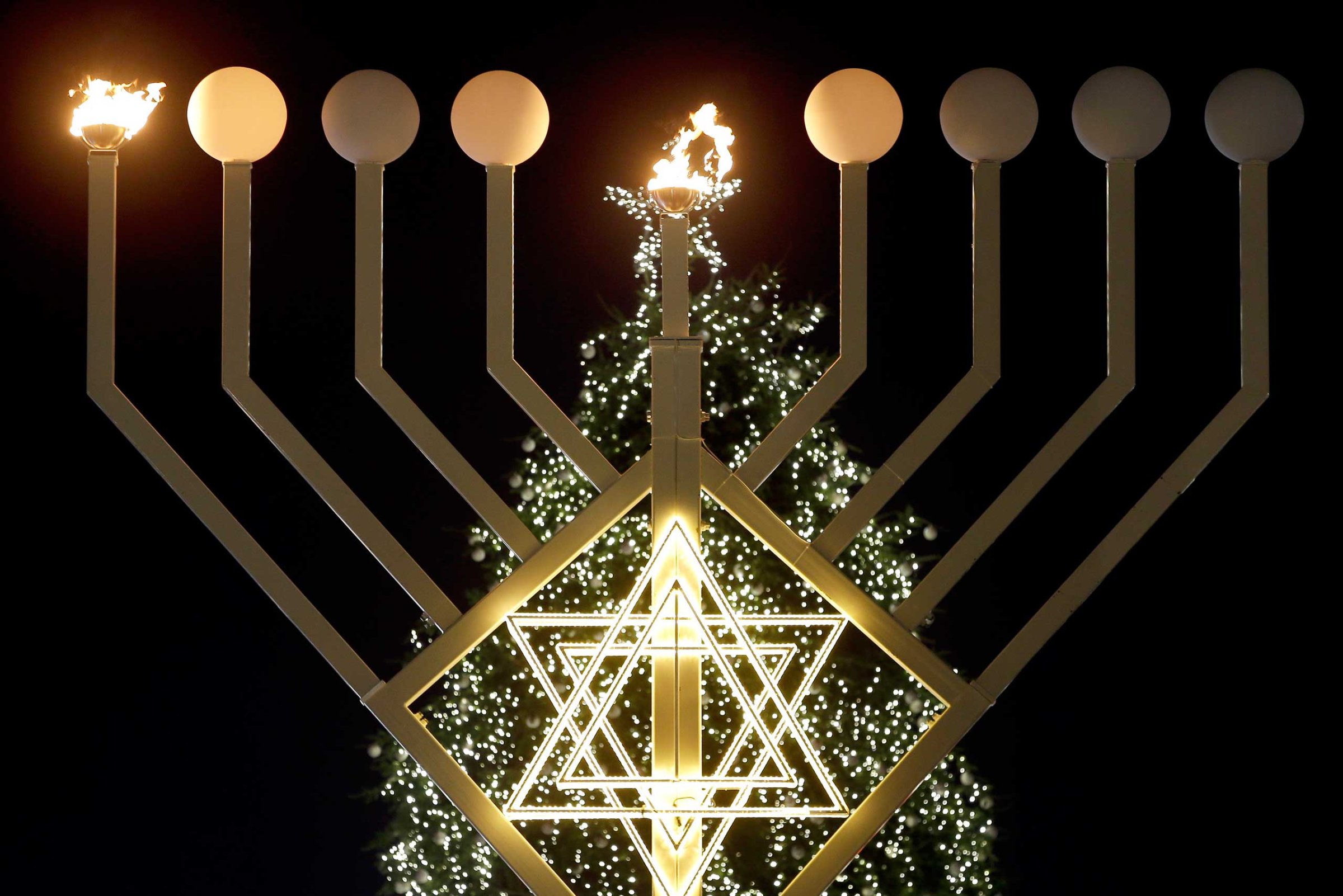
The most famous debates of Jewish law throughout history occurred between the students of Hillel the sage and the students of Shammai the sage. And of those famous debates, the one most often discussed case involves the lighting of the Hanukkah candles.
The students of Shammai argued that the first night of the eight day festival Jewish people are commanded to light all eight candles of the menorah and then remove one additional candle with each successive night. This, they reasoned, would show that our joy is diminished as the festival goes on. The students of Hillel, on the other hand, argued that we begin lighting one candle and then add an additional candle each night until the menorah is burning bright with eight candles on the final night. This shows that our joy increases throughout the holiday.
The Jewish tradition of lighting Hanukkah candles follows the school of Hillel. And I’m glad my ancestors ruled the way they did. The increase of light is a beautiful metaphor not only for this dark time of year, but for these dark days in our nation. The warm glow of the menorah we place in our windows for all to see demonstrates our determination to bring much needed light into our communities despite the unrest among us. For this reason, another name of Hanukkah is the “Festival of Lights” and Judaism is not the only religion seeking to bring light into this dark world.
It is no coincidence that lights are a core component of Hanukkah, Christmas, and Kwanzaa. Each of these three religious holidays occurs around the winter solstice when the days are the shortest and our nights become darker earlier. Like the lighting of the Hanukkah candles, the lighting of the Kwanzaa candle also seeks to bring light into a dark world. Streets are brighter during this winter holiday season as those celebrating Christmas light Advent candles and string bright, colorful lights atop their trees and houses. The dedication to light as a metaphor during the cold, dark months is not even limited to only those observing Hanukkah, Christmas, or Kwanzaa. Diwali, the Hindu festival of lights, was celebrated this past October by Hindus, Jains, and Sikhs. Additionally, the Zoroastrians celebrate the winter solstice with their holiday of Yalda.
Why do so many of the world’s religions mark the darkest season with festivals of light? The kindling of fire brings much needed light into our lives and it also symbolizes hope. That message is needed now more than ever. I look around me at the state of our country today and I’m scared and angry. I’m scared because it’s full of the darkness of distrust and racial disharmony. I’m angry because I had imagined a brighter America for my young children as they grow older. I’m scared because I’m seeing race relations move quickly in retrograde motion and I’m angry because so many decades of progress appear to be for naught.
News reports should be boasting of progress. Just like science, medicine and technology, the way we treat each other should also be improving. Why can we report our amazing stories of innovation in every area of society save for the way we treat those who are different than us? For too many years, we’ve reasoned that if the President living in the White House is black and so are CEOs and surgeons, then racial tension must have ended in our country. Of course, this couldn’t be further from the truth. We have a lot of work to do.
The historical narrative of Hanukkah is not merely about creating light. It’s a story about the miracle of light. Indeed, it would be a modern day miracle if we all sought to bring more light into our dark society. Jews and Christians, Muslims and Hindus, Mormons and Atheists—regardless of race or the color of their skin—must all work together to bring much needed light into our world. I desperately want to stop being scared and angry for the world I will bequeath to my children and grandchildren. My parents’ generation worked too hard to right the wrongs of racism in our nation for us to let it sadly slide back to a much darker time.
More Must-Reads from TIME
- Donald Trump Is TIME's 2024 Person of the Year
- Why We Chose Trump as Person of the Year
- Is Intermittent Fasting Good or Bad for You?
- The 100 Must-Read Books of 2024
- The 20 Best Christmas TV Episodes
- Column: If Optimism Feels Ridiculous Now, Try Hope
- The Future of Climate Action Is Trade Policy
- Merle Bombardieri Is Helping People Make the Baby Decision
Write to Jason Miller at rabbijam@gmail.com